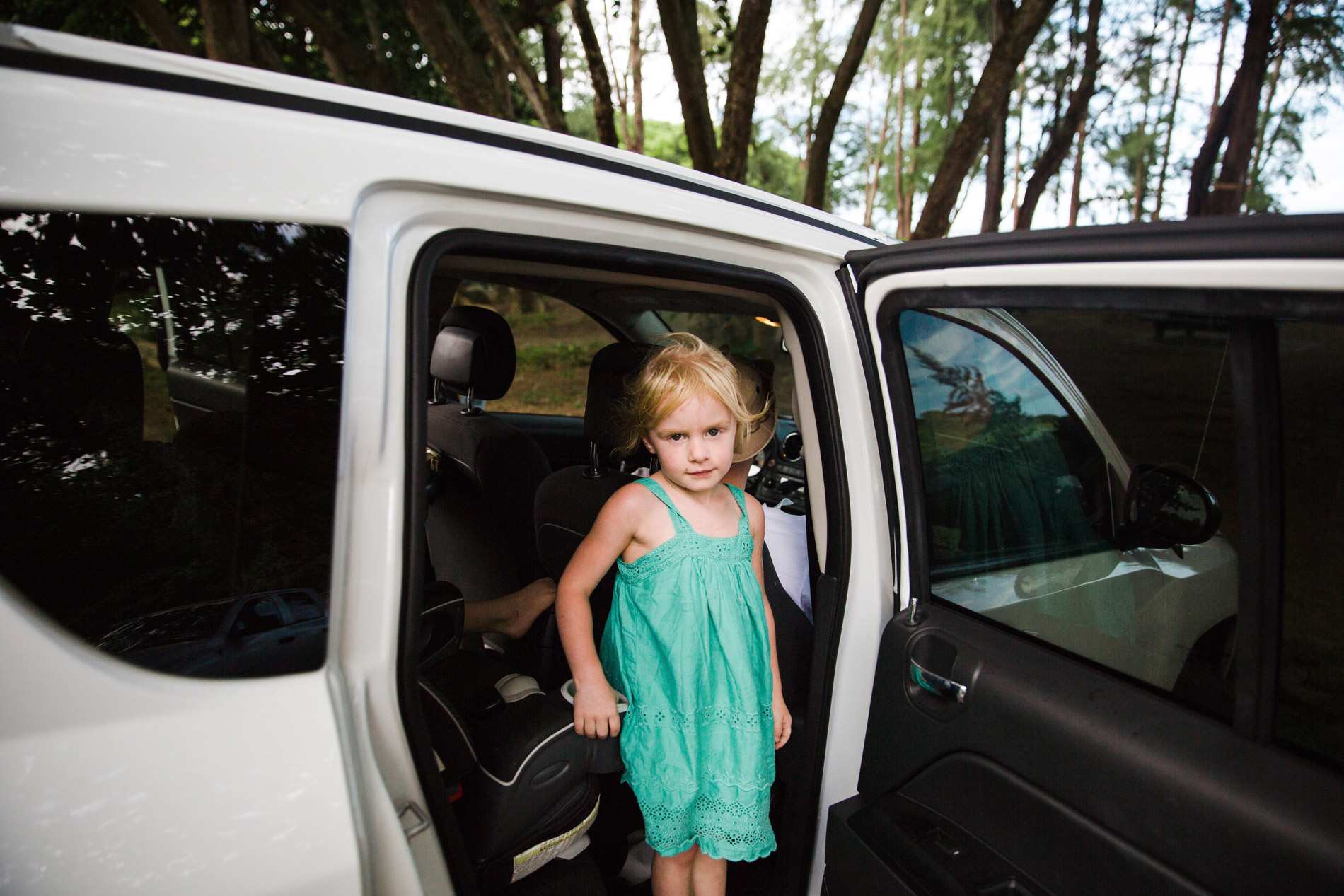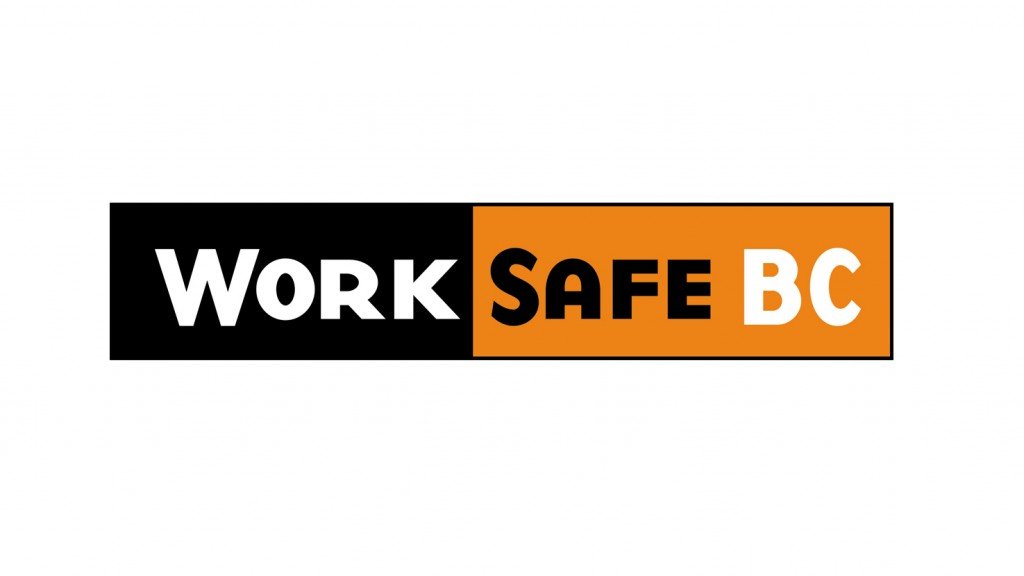Under-Deductible Losses (UDL) Program and Rider Insurance Program
Under-Deductible Losses (UDL) Program
Effective April 1, 2022, foster parents will now have access to a low barrier process to manage damages and losses valued below $10,000 (under the Rider Insurance Program deductible), caused by the child/youth in their care. This program will be an alternative to submitting eligible repairs and losses to MCFD or Indigenous Child and Family Service Agencies (ICFSAs) for compensation. The UDL claims will be administered through Coast Claims Insurance Services.
Claims Eligibility Criteria
- The nature of damage or loss under this program is that it is done suddenly and either accidentally or intentionally by a child or youth placed in the home.
- Claimant must be a foster caregiver with a current Family Care Home Agreement with the Ministry of Children and Family Development or with a Indigenous Child and Family Services Agency (ICFSA) Agency.
- Claim must be under the Rider Insurance Program deductible of $10,000. Damages and Losses over $10,000 will be handled under the Rider Insurance Program.
- The UDL program cannot provide assistance to repair damage caused by normal wear and tear.
- The UDL program is not a replacement for property insurance. This program is not accessible to cover damages above the rider deductible for those who are not insured. It is expected as part of the Family Care Home Agreement that foster parents have home or tenant insurance.
Steps to Make a Claim
Step One | Call Coast Claims
Call Coast Claims Insurance Services toll-free at 1-866-694-3111 and ask for Shannon Mycroft to initiate a claim. Damages should be reported as soon as possible after the event has occurred. This coverage is provided per-occurrence, and each event will need to be reported individually.
Step Two | Submit Documents
Submit the following documents to the adjuster at bcfpa@coastclaims.com. When the adjuster receives the full set of your documentation, they will ensure that everything is in order. Copy all documents to your MCFD/Agency worker for their records.
- Copy of the signature page of your current Family Care Home Agreement.
- Statement of Circumstances. A detailed statement describing the incident including specific dates, times and who was involved. Please keep in mind that, in order to protect the privacy of the child/youth, their name should not be used in this statement. Use initials and age rather than their full name.
- Provide pictures of damage/s, if applicable.
- Provide three cost estimates for comparable replacement or repair for damaged or lost item/s.
- Ensure that Coast Claims has all your current contact information including name, full address, phone number, and email address.
Step Three | Adjuster Contacts You
The adjuster will be in contact with you to ask specific questions toward the settlement of your claim. Insurance adjusters work as quickly as possible but there are occasions when the claims process is slowed down by unavoidable circumstances, such as incomplete paperwork, difficulty contacting claimants, or acquiring estimates. In order to expedite the settlement of your claim, please be sure to follow all instructions and send all paperwork promptly.
Step Four | Repairs and Reimbursement
Your adjuster will contact you regarding the settlement of your claim and payment. Every claim is different, and although the claims process can vary slightly according to the situation, your adjuster will devote the time and attention it takes to resolve your particular case.
Rider Insurance Program
BCFPA administers the Rider Insurance Program which, in many situations, covers the damages done to the property and belongings of all MCFD and ICFSA contracted foster caregivers in BC. The Ministry of Children and Family Development has arranged for Extended Property Damage (Rider) Insurance to supplement a residential caregiver’s homeowner or tenant insurance policy. The Rider follows the underlying homeowner or tenant property policy to provide up to the same limits and coverages. The rider mirrors the caregiver’s own primary policy. For example, if the policy covers $10,000 for jewelry, then the Rider will cover $10,000 for jewelry that is damaged by the child or youth in care.
The Rider Insurance Program is a “group plan” and BCFPA administers this policy on behalf of all foster parents insured under the policy. The premiums are paid for by the Ministry and coverage is provided automatically to all caregivers who deliver foster care services or youth justice care under an agreement directly with the Ministry or a ICFSA, and have homeowner or tenant insurance.
Damages are covered by the Rider program when done by the children/youth in care only if any one incident is more than the deductible on the caregiver’s policy. The minimum deductible is $10,000 per claim or the deductible stated on the foster caregiver’s policy, whichever is greatest. Contact the Ministry or your ICFSA for payment or reimbursement of the deductible. For damages that are below the $10,000 deductible, please see the Under-Deductible Losses (UDL) Program.
The maximum coverage for house and contents damaged by a foster child is $500,000 per claim or the maximum limit of your homeowner or tenant policy, whichever is less, subject to all other insuring agreements, limits, definitions, declarations, conditions and exclusions of individual foster parent’s personal insurance policy or policies.
Steps to Make an Insurance Claim
Step One | Call Coast Claims
Call Coast Claims Insurance Services toll-free at 1-866-694-3111 and ask for Shannon Mycroft to initiate a claim. You can also send an email to bcfpa@coastclaims.com. Report your claim as soon as possible following loss or damage to your own property caused by a child or youth in your care. Unsure whether the Rider will cover it? Call Coast Claims and Shannon would be happy to help you.
Step Two | Submit Documents
Submit the following documents to the adjuster at bcfpa@coastclaims.com. When the adjuster receives the full set of your documentation, they will ensure that everything is in order. Copy all documents to your MCFD/Agency worker for their records.
- Copy of your Insurance Policy Wording. It is important to note that you do not need to open a claim through your own insurer. The purpose of this policy is to protect you from having to place claims for damages done by the child in your care.
- Statement of Circumstances. A detailed statement describing the incident including specific dates, times and who was involved. Please keep in mind that in order to protect the privacy of the child/youth, their name should not be used in this statement. Use initials and age instead of their full name.
- Declaration page from the insurance company (sometimes called the “face page”) corresponding with the date of the incident.
- Copy of your Foster Home Agreement or Contract corresponding with the date of the incident (only the signature pages).
- For theft claims, please include your police file number.
- Estimates or receipts of repair for all damaged items.
- Pictures of the damage.
Step Three | Adjuster Contacts You
A local insurance adjuster will be in contact with you to ask specific questions toward the settlement of your claim. Insurance adjusters work as quickly as possible but there are occasions when the claims process is slowed down by unavoidable circumstances, such as incomplete paperwork, difficulty contacting claimants, or acquiring estimates. In order to expedite the settlement of your claim, please be sure to follow all instructions and send all paperwork promptly.
Step Four | Repairs and Reimbursement
Your adjuster will contact you regarding the settlement of your claim and payment. Every claim is different, and although the claims process can vary slightly according to the situation, your adjuster will devote the time and attention it takes to resolve your particular case. Please contact your Resource Worker for payment or reimbursement of your deductible.
“On the basis that a foster parent should not be ‘out of pocket’ related to the authorized expenses of caring for a child in care, the foster parent’s deductible cost is reimbursed by the Ministry after considering the amount of unexpended funds that may be available from the family care home payments. Service payments are not used to cover any deductibles.” – Resource Worker Policies, Appendix D
The Certificate Program for Residential Care Homes
The Rider claims procedure is the same for all foster caregivers unless purchased separately through the Certificate Program. The Rider is not automatic for residential caregivers who do not have a contract with the Ministry of Children and Family Development or a Delegated Aboriginal Agency or placed through the Youth Justice Act; however, they are eligible to purchase the same coverage if they meet the qualifications and have their own homeowner or tenant insurance. These residential caregivers include those providing in-home care on behalf of community agencies where the funding for care is not through the Ministry or a Delegated Aboriginal Agency, such as independent agencies or Aboriginal bands.
If you have a child/youth placed through a society or band, you should purchase additional Rider coverage for damages caused by the child or youth in your care. You will need to purchase this additional coverage even if you have qualified as well for automatic coverage for another child in your home. The annual non-refundable premium for the Rider insurance is $475 per bed. To purchase coverage, please contact Walker Ross from Megson Fitzpatrick Insurance Services at 1-888-595-5212.
Extended Property Damage (Rider) Insurance Program for Foster Parents Frequently Asked Questions
Be sure to also review the Property Rider Insurance Overview document as many of the basic questions about the program are answered there.
Is the process to settle claims a lengthy one?
The insurer works very hard to ensure that claims are settled in a timely manner. However, at times there may be issues holding up the completion, such as incomplete paperwork, late reporting, difficulty contacting claimants or acquiring estimates etc.
Are claims sometimes refused by the insurer?
A claim may be refused if the damage is not caused by a child/youth placed in the home. In this case, the foster parent is directed to make a claim through their primary insurance provider. Claims might also be refused if coverage is excluded under your primary homeowner or tenant policy or if you have no homeowner or tenant insurance.
The youth repeatedly peels the paint off the walls in our home. Each incident is less than the deductible. Who will offer coverage based on cumulative effect?
No insurance is available to cover ongoing damage either through a primary policy or through the Rider, which mirrors your primary policy. You should seek restitution through the social worker.
I had a teenage girl staying in my home. Over a period of 6 months, she spilled nail polish on the dresser and carpet. In addition to that, she caused some damage to her windows and door. No one incident is more than my insurance deductible. Who will cover the damage?
Due to the damage being ongoing (cumulative), with each incident being less than your primary policy deductible, the Rider would not cover the damages. The youth’s social worker should be made aware of these damages in order for the Ministry to cover the damages.
I have a child in my care who caused some water damage in our home. Would new flooring be covered by the Rider?
Though ongoing damage is not covered under the Rider, cases such as this require individual assessment. You should submit a claim and the adjustors will discuss the situation directly with you.
I had a teenager in my home. Every week, she kicked holes in the wall or the door. She also damaged some furniture which is quite expensive to repair or replace. She has since moved to another home and I’m ready to claim for the damages. Where do I start?
Each incident must be treated as an individual claim which may or may not exceed the deductible amount on your policy. In addition, you have only 2 years from the date of an incident to file a claim. Make individual claims for each incident over the deductible amount. Speak with the social worker about the damages that are under the deductible amount.
Can I claim repairs to walls, windows, doors etc. that have been damaged by other youth in care and/or their friends?
Damages are covered by the Rider program when done by children/youth placed in your care only if any one incident is more than the deductible on the caregiver’s policy. Damages caused by guests to your home would be covered by your primary policy. The Rider only addresses damages caused by children/youth residing in your home.
Does the Rider cover damages done by respite children as well?
If the respite caregiver is an approved foster parent with a valid respite contract in place, the Rider will cover damages done by children in respite care.
If I am providing relief for another foster parent and the youth in care damages my home, will the Rider cover me?
If you are providing relief directly for another foster parent and they are paying you, the Rider will not cover you unless you also have a Care Home Agreement. If you do not have a contract you would have to sue the other foster parent unless your primary carrier was willing to cover the damage. Our agent has suggested that it may be advisable for caregivers to purchase their own business insurance.
Does the Rider cover theft of money or jewelry?
The Rider covers the caregiver to the extent that they have covered their property through their primary coverage. The Rider mirrors your own primary policy. In instances of theft, your foster child must be charged with the theft by the police or alternative proof or an admission that he or she committed the theft.
The child left the tap running. This caused the well to run dry and burned out the pump. Who will pay to have this fixed?
Submit a claim through the Rider and the insurance adjuster will review the circumstances of the claim.
The Ministry wants me to take a placement who has a history of arson and was already convicted of burning someone’s house down because they were upset. Will I be covered if the same thing happens to me?
The Rider will provide coverage for these types of circumstances. There is no exclusion under the Rider for children with a previous history.
The youth caused damage to my car. ICBC won’t cover it unless charges are being laid. What can I do?
The Rider does not cover damage to motorized vehicles. You would either have to charge the youth for purposes of putting in a claim with ICBC or discuss restitution with your social worker.
If someone is visiting my home and the youth placed in my care does damage to their car, who pays the deductible?
The individual who sustained the damage would make a claim through ICBC, and the Ministry may cover the cost of their deductible.
Does the Rider cover theft of the family vehicle by a CIC?
Motor vehicles fall under ICBC, and they should be contacted. If you have ATVs, trailers or fifth wheels, they may be covered under your house insurance, in which case the Rider would cover the damage.
I am a renter. If my foster child damages the house or apartment I rent, who will cover the damages?
The damage to a rental property would be covered under the landlord’s insurance. The landlord’s insurer may wish to subrogate against your liability insurer in order to recoup any losses.
If my foster son causes major damage to a friend’s house, does the Rider cover the costs?
The owners of the home where the foster child causes the damage could either discuss the situation with you and the child’s social worker or launch a lawsuit through your liability coverage. All foster parents with signed contracts have this liability coverage through the Master Insurance Program automatically. Society or agency homes should contact their organization for the appropriate answer in this situation.

Caregivers Group Liability Program (CGLP)
The purpose of the CGLP is to provide our valued Caregivers of the children of British Columbia added protection by way of liability coverage. This coverage is provided to Caregivers at no cost through the enrollment of your agreement with either the Ministry of Children and Family Development or a Delegated Aboriginal Agency.
For quick access to the Caregivers Group Liability Program, contact:
Brenda Petersen or John Giesbrecht at 250-413-2210 or caregivers@aon.ca

Vehicle Insurance for Foster Parents
On February 20th, 2020, ICBC’s Underwriting Department confirmed that vehicle business insurance is not required for foster parents while transporting children for any reason. Fostering is not considered a business nor is fostering considered your “job”, according to ICBC’s definition. In the ICBC policies, foster parents are considered parents who are transporting family members. The only situation where business insurance would be required is if a vehicle’s primary use is for business purposes. Please don’t hesitate to contact BCFPA for further assistance if necessary.
WorkSafeBC
Foster parents under contract to MCFD and Delegated Aboriginal Agencies providing their own homes to care for children and youth are considered independent contractors. As such, they are eligible to purchase Personal Optional Protection (POP) Insurance through WorkSafeBC. It may cover healthcare, wage-loss, and rehabilitation benefits. While it is not mandatory to register with and purchase coverage, it may be in their best interest to do so in case of work-related injury which may or may not include assault by a child or youth in care. Foster parents can contact Assessments by phone at 1-888-922-2768, Monday to Friday, during business hours.

Extended Health Benefits for Foster Parents
Extended health benefits are available through GSC Health Assist. BCFPA is still researching options for critical illness, disability and life insurance coverage.
BC Human Rights Tribunal Decision on Insurance Company Discrimination Toward Foster Parents
In what has been a long-awaited decision regarding insurance company discrimination against foster families based on family status, BC Human Rights Tribunal member, Lindsay Lyster, ruled in favour of a foster parent. BC Foster Parents Association attended the hearing and gave evidence on the foster parent’s behalf.
In a letter sent to their insurance broker, the foster parent was deemed a “moral hazard” by ING Canada and said that it would not be able to renew their policy. The term “moral hazard” is defined as “danger of loss arising from the nature of the insured rather than from the physical nature of the risk. This would encompass those instances where the chance of loss is increased by an insured’s carelessness, incompetence, recklessness, indifference to loss or an insured fraudulent nature”. The foster parent was informed by the ING representative that the term “moral hazard is an outdated term used to refer to all factors related to risk other than the physical nature of the property.” ING contended that the foster parent should not have taken the term as an accusation of carelessness or fraudulence. ING further contended that there was no intent on their part to discriminate against them based on family status.

ING’s other issue was that the foster parent had secondary coverage. This led to some apprehension on the part of ING as, generally, secondary insurance on the same property against the same risks has a fraudulent intent. Secondary insurance is provided by the government of British Columbia for foster parents and covers intentional damage or theft by a child or youth in their care. Lindsay Lyster stated the foster parent “did not insure the same property against the same risks. Rather, she had additional insurance coverage to cover risks associated with having a foster child in the home which neither ING nor any other primary insurer will cover.” She also noted that she was satisfied that ING did not fully understand how the BCFPA Insurance Rider works. However, she said it was incumbent on ING to investigate this Rider in order to fully understand its purpose due to the unusual nature of the circumstances.
The tribunal found that “the effect of the application of ING’s standard risk assessment was to discriminate against the foster parent on the basis of the foster parent’s family status.”
Information regarding the Rider Insurance Program has been provided to the Insurance Bureau of Canada several times with a request to share the information with its member agencies. In addition, the BCFPA makes Rider Insurance Program information available to insurance companies and foster families. The information is also posted on the BCFPA website.
If you are a foster caregiver who feels that you are being discriminated against in trying to obtain insurance due to your role as a foster caregiver, please call BCFPA at 1-800-663-9999.

Should any foster caregivers find they are having difficulty securing home or tenant insurance, please call:
Megson FitzPatrick Insurance Services
Telephone: 250 595-5212 or 1 888 595-5212
Fax: 250-595-2900
Web: www.megsonfitzpatrick.com
3561 Shelbourne St. Victoria BC V8P 4G8
For additional information on the Foster Parent Insurance Programs or to report a claim, please contact:
BCFPA Provincial Office
Telephone: 1-800-663-9999
Fax: 604 544-2223
email: office@bcfosterparents.ca
To contact the Insurance Bureau of Canada call 604 684-3635 for their consumer information desk or visit www.ibc.ca.
Phone
Main:
604-544-1110
Toll-Free Foster Parent Line:
1-800-663-9999
Office hours: 8:30 am - 4:00 pm, Monday to Friday
PROVINCIAL CENTRALIZED SCREENING
Foster parents are encouraged to call this number in the event of an EMERGENCY or CRISIS occurring after regular office hours:
1-800-663-9122
REPORT CHILD ABUSE
If you think a child or youth under 19 years of age is being abused or neglected, you have the legal duty to report your concern to a child welfare worker. Phone 1-800-663-9122 at any time of the day or night. Visit the Government of BC website for more info.
address
BCFPA Provincial Office
Suite 208 - 20641 Logan Avenue
Langley, BC V3A 7R3
contact us
Fill out our contact form...

News
Site menu
Subscribe to Our Newsletter
Charitable Registration #
106778079 RR 0001
Our work takes place on the traditional and unceded Coast Salish territories of the Kwantlen, Katzie, Matsqui and Semiahmoo First Nations. BCFPA is committed to reconciliation with all Indigenous communities, and creating a space where we listen, learn and grow together.
© 2021 BC Foster Parents. Site design by Mighty Sparrow Design.
